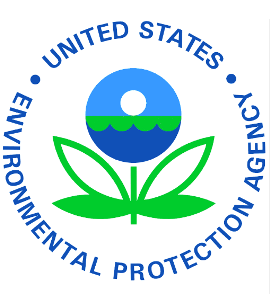EPA Continues to Take Actions to Address PFAS in Commerce

LENEXA, KAN. (MARCH 18, 2021) – The U.S. Environmental Protection Agency (EPA) is announcing two important actions to safeguard communities from products containing PFAS – Per-and Polyfluoroalkyl Substances.
First, as part of EPA’s effort to identify, understand and address PFAS contamination leaching from fluorinated containers, the agency is notifying companies of their obligation to comply with existing requirements under the Toxics Substances Control Act (TSCA) to ensure unintentional PFAS contamination does not occur. The agency will also remove two PFAS from its Safer Chemical Ingredients List (SCIL) following a review of these substances (which were added to that list in 2012).
PFAS are widely used, long lasting chemicals, components of which break down very slowly over time.
Because of their widespread use and their persistence in the environment, many PFAS are found in the blood of people and animals all over the world and are present at low levels in a variety of food products and in the environment.
PFAS are found in water, air, fish, and soil at locations across the nation and the globe.
Scientific studies have shown that exposure to some PFAS in the environment may be linked to harmful health effects in humans and animals.
There are thousands of PFAS chemicals, and they are found in many different consumer, commercial, and industrial products.
This makes it challenging to study and assess the potential human health and environmental risks.
“Today’s action will help ensure that responsible parties are held accountable for any future PFAS contamination affecting communities,” said Assistant Administrator for the Office of Chemical Safety and Pollution Prevention Michal Freedhoff. “Additionally, keeping PFAS out of consumer products certified under the agency’s Safer Choice program will help prevent potential exposures to PFAS from occurring in the first place.”
TSCA Compliance Notification Letter to Industry on PFAS in High-Density Polyethylene (HDPE) Containers
Today, EPA notified manufacturers (including importers), processors, distributors, users, and those that dispose of fluorinated HDPE containers and similar plastics (i.e., fluorinated polyolefins) that the presence of PFAS formed as a byproduct in these containers may be a violation of TSCA.
In an open letter released today Letter to Fluorinated HDP Industry, EPA outlines notifications requirements under TSCA for such PFAS. Certain PFAS, including long-chain PFAS as defined in EPA’s 2020 long-chain perfluoroalkyl carboxylate (LCPFAC) Significant New Use Rule (SNUR), that are found to be present in or on fluorinated polyolefins may be subject to TSCA regulations and enforcement. LCPFAC chemical substances that are byproducts of the manufacturing process for fluorinated polyolefins do not meet the requirements of the byproduct’s exemption. This means that the uses require notice to EPA via a Significant New Use Notice (SNUN), EPA review of potential risks of this use under TSCA section 5, and a determination of whether (and under what conditions) such uses can continue.
In March 2021, EPA made testing results available related to PFAS found in fluorinated containers. The contamination was first noted in HDPE containers used to store and transport a pesticide product. As the agency continues to determine the potential scope of the use of this fluorination process outside of its use for pesticide storage containers, EPA is issuing this letter to notify industry of their statutory obligations under TSCA and to help prevent unintended PFAS contamination.
Under the PFAS Strategic Roadmap issued by EPA Administrator Regan in October of 2021, EPA has committed to improve approaches for tracking and enforcement of PFAS requirements in new chemical consent orders and SNURs. The letter released today supports this goal by ensuring that manufacturers, processors, distributors, users, and those that dispose of these containers are aware of and are complying with the SNUR requirements.
For questions concerning this matter, contact EPA at TSCA_PFAS@epa.gov.



